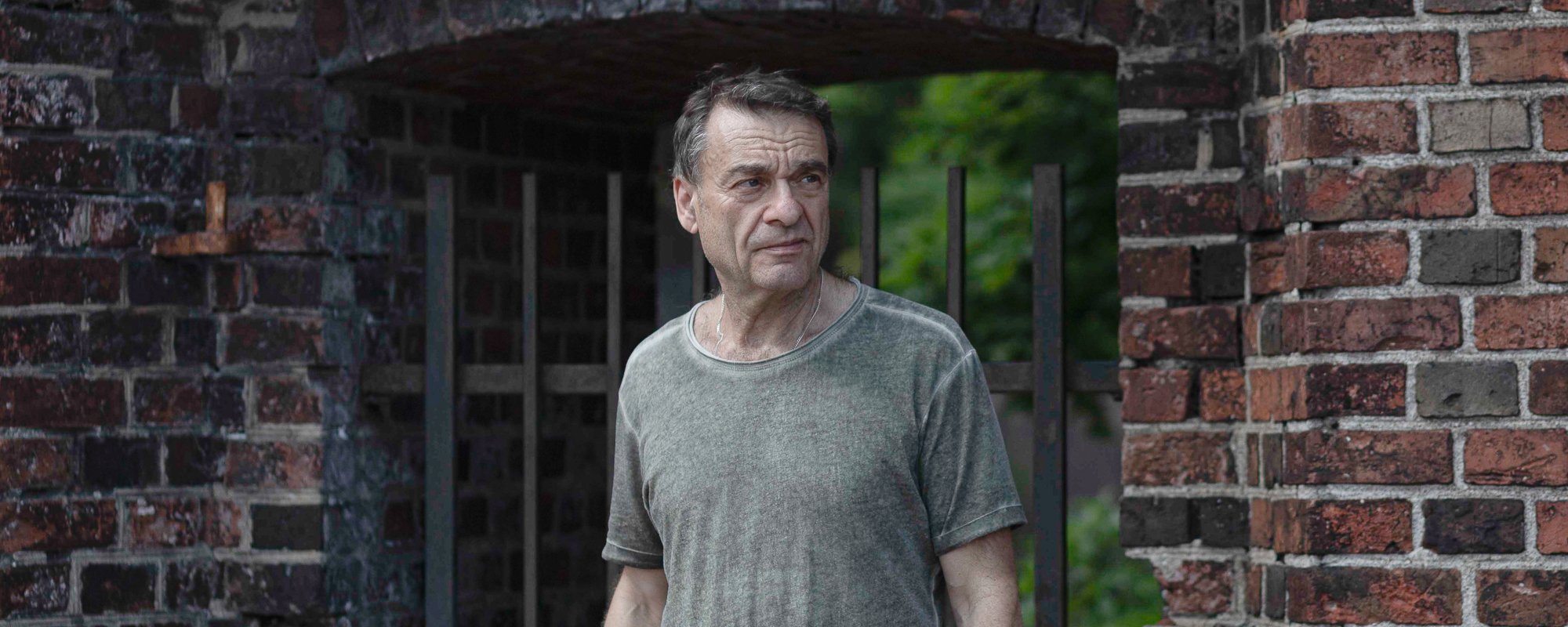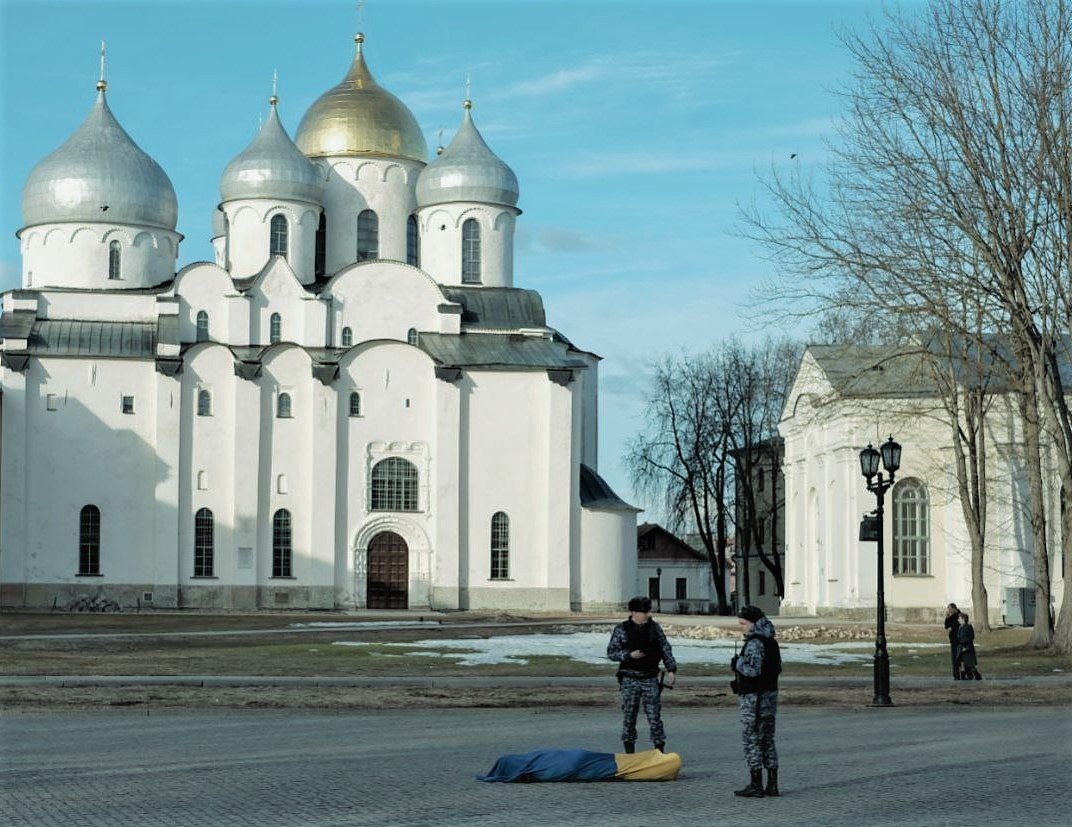Igor Baryshnikov, a 64-year-old activist from Sovetsk (in Russia’s Kaliningrad region exclave, sandwiched between the Baltic Sea, Lithuania and Belarus) was charged because of his anti-war Facebook posts, and sentenced to seven and a half years in prison. Baryshnikov needs urgent surgery. He also has an elderly paralyzed mother and is her sole caregiver. They might both die because of the sentence. Here is their story.
Igor Baryshnikov learned of his first criminal case in May 2022. The case was initiated under an article on «fakes» about the Russian army (part 1 of Article 207.3 of the Criminal Code), the reason being the posts on Facebook, including some about the Kremlin’s shelling of Mariupol and the Bucha massacre.
«I was out jogging at the stadium when the police phoned me, » recalls Baryshnikov. — They asked me to sign a court summons. I suggested they leave the paper in the mailbox. The cops replied: «We’d like to hand over the document directly to you, so there won’t be any problems later on». We agreed to meet in one hour near my house».
When he approached the entrance, a minibus with tinted windows was waiting for him and several masked police jumped out of it. Baryshnikov managed to start a live broadcast on Facebook, and the moment of him being grabbed made it into the stream.
The search raid lasted for about six hours. The police carefully searched every room and seized all the phones — the new one that Baryshnikov was using and the two old ones. They also took a router and a laptop gifted to Baryshnikov by his daughter. Baryshnikov used it to record the slogans that protesters shouted at rallies in support of Alexei Navalny in January 2021. In addition, cops took several protest signs.
«I had a book called ‘The Nuremberg Trials’ lying in the hallway. It also got an investigator’s interest. He didn’t explain why. I don’t know whether he didn’t realise what kind of book he had grabbed, or whether, as the classic authors wrote, a criminal is drawn to a crime scene» — Baryshnikov jokes.
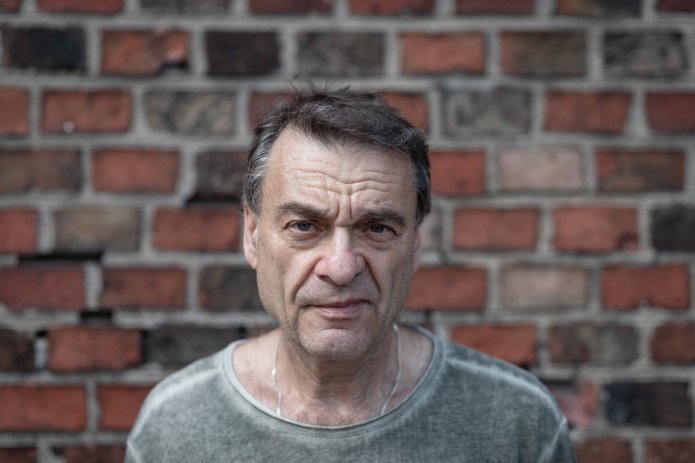
Baryshnikov, a 64-year-old retiree, moved to Kaliningrad region from Chelyabinsk region seven years ago to take care of his mother when she broke her leg and became bedridden. She is now almost 97, paralysed, and there is no one there to take care of her but her son.
Baryshnikov got interested in politics in 2013 amid Maidan events. «I was watching a lot of TV Rain (Russia’s foremost independent TV channel) at the time, and witnessing what was happening in Ukraine virtually live. Afterwards, I was reading Komsomolskaya Pravda (a pro-government tabloid) and watching state TV. I realised that they were manipulating the facts», the man recalls.
In 2017 he started participating in protests from time to time. «The first time was scary, of course. But then I got into it, got interested. I liked our local Navalny headquarters, and I tried to participate in all the protests they were organising».
Baryshnikov was first arrested on January 23, 2021, during a protest in support of Alexei Navalny after his return to Russia. «The whole Victory Square in Kaliningrad was filled with protesters that day. I’d never seen so many people there before», he recalls. «I was detained immediately after the protest. An officer from the Center for Combating Extremism ran after me through the whole square, all out of breath, he seized me by the sleeve when I was about to cross the road».
That time Baryshnikov was jailed for eight days. In April of 2021, he was detained again and that time an arrest of 22 days was imposed since he was considered the organiser of the protest.
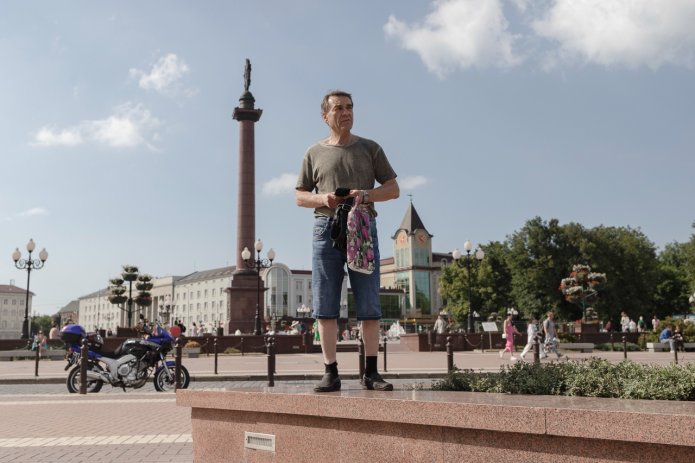
Baryshnikov says it was the first arrest that seriously negatively affected his mother’s health, “She went cuckoo, you could say. It was impossible to make out what she was saying – she was talking gibberish. After I was released from the detention centre and came home, she seemed to be getting better with time. But truth be told she never fully recovered”.
Baryshnikov recounts that his mother used to follow politics — she particularly liked listening to Radio Liberty, but after her son’s arrest she lost interest in life. “Both her hearing and her general perception of reality deteriorated a lot. If you prop her up in bed, she just sits there. She cannot eat on her own anymore, so I have to spoon-feed her”, he says.
Baryshnikov links the decline in his mother’s condition to the stress experienced following his arrest. He was certain that his protest action was going to go peacefully, so he didn’t think to take precautions and find anyone to look after his mother should something happen. He explains: “There was a Jewish organisation [Baryshnikov’s mother is a Holocaust survivor] already helping us at that point, but I didn’t warn them that we might need additional support. So they haven’t assigned a carer to come over at that point. The situation was chaotic, and we had to find a solution quickly, so in the end the task of looking after her fell upon the guy who was doing repairs at our flat”.
According to Baryshnikov, during his arrest, the city administration only called his mother once but did not provide her with any help. “She used to be a homefront worker during the Second World War, and now she is left alone with no support. But they didn’t care”, he says.
Baryshnikov claims that during the seven years that he has been tending to his mother they have never received any help from the state. Only once, on her birthday, local authorities visited her to offer their congratulations and presented her with a cake, a tea china set, and tea.
“They have never asked us whether we needed support, whether we were doing alright at all. Whether my mother needed diapers or medication. Instead, the Investigative committee sent their people to enquire at the charity that was helping my mother whether I was disseminating anti-war views among them. Just a few days before 9 May, Victory Day, when all veterans get their postcards from Putin, they came to our home to conduct a search, which I find quite ironic. What a way to congratulate my mother”.
In 1941, during the Second World War, Baryshnikov’s mother and her family travelled partly on foot, partly hitchhiking, from occupied Belarus to Tatarstan. “Hesed Kaliningrad”, a Jewish foundation, has officially recognized her as a victim of fascism and has been sending their workers to help take care of her.
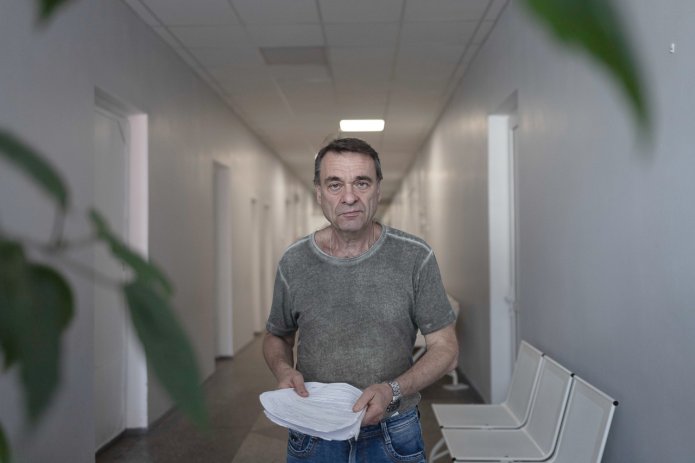
After the search in May 2022, Baryshnikov was taken to the Investigative Committee (IC). In the protocol, the police indicated that while leaving the flat the man shouted “I will do everything to overthrow this government anyway,” although according to Baryshnikov himself, there was nothing like that, he exited in silence.
In the Investigative Committee, the man was taken for an interview and given a lawyer by appointment — Sergei Tvetinsky. “When he pulled out his phone, I immediately noticed: he has a Z [Russian pro-war symbol] as his phone wallpaper”, the activist recalls. “Recently I saw in the news that he went to Ukraine and blew himself up on a mine there”.
According to Baryshnikov, the interview was very formal. He was asked about his place of residence, where he was from, and whether he was the owner of the Facebook account from which the anti-war posts were published. Baryshnikov refused to answer the question about Facebook. Then he was released on his own recognizance.
A few weeks later, the activist received another call from the police. They said that five administrative cases were brought against him for discrediting the army (Article 20.3.3 of the Code of Administrative Offences). The statute of limitations of one case, concerning a post critical of Putin, has expired and it has been dropped. Another was found to contain errors. As a result, Baryshnikov was charged with only three episodes of discrediting the army, all of which concerned his posts on Facebook about the course of the war in Ukraine.
One of the posts contained a conscript's account that "they were ordered to liberate Kyiv from the Nazis". Maria Bontsler, Baryshnikov's lawyer affiliated with OVD-Info, referred in court to the fact that the Ministry of Defense later confirmed that conscripts were indeed sent to Ukraine. Therefore, there are no contradictions in the activist's post.
However, according to the court, when Baryshnikov wrote the post, it was believed that there were no conscripts in Ukraine, which is why the publication discredited the army. Finally, all three episodes of discrediting the army were combined into one administrative case, in which the court imposed a fine of 30,000 rubles [US$ 350].
In June 2022, the investigator contacted Bontsler, the lawyer, and told her that another criminal case had been opened against her client, again under the article about “fakes” about the Russian army, this time based on political hatred (article 207.3 part 2 paragraph “e” of the Criminal Code).
The case was once again based on Facebook posts. One of them, in particular, referred to the number of dead on the "Moskva" battleship [sunk by the Ukrainians early in the war], another — to the Kremlin’s war crimes in Ukraine.
The two criminal cases were consequently merged into one court proceeding. Baryshnikov has been charged only with the crime under article 207.3 part 2 of the Criminal Code (“fakes” about the Russian army), the punishment for which can reach up to 10 years. On the primary charge — under part 1 of the same article — he risked only five years.
Baryshnikov says that even if he had known that the posts might have led to a criminal case, he would have published them anyway — it was important for him to speak out: "At least I did something. I think it will still play some role in the future both for Russia and its citizens, and for me and my family. In 1968, eight people came out to the Red Square. Yes, just eight people, but these eight existed! And they saved the country, so to speak. That is, now it is also important to show that not everyone is at one and some people care about what is happening in Ukraine”
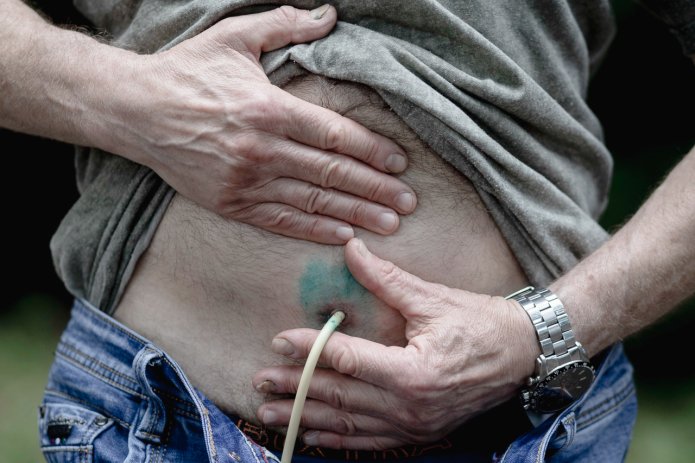
In May 2023, the prosecutor requested eight years’ imprisonment for the activist. They sentenced him to 7.5 eventually. According to lawyer Maria Bonzler, the sentence will kill two people at once — Baryshnikov and his mother.
During the trial, Baryshnikov's chronic illness aggravated and he was suspected of having cancer. A cystostomy tube was inserted into his abdomen. Later the man was diagnosed with a tumour with a suspicion of prostate cancer.
The lawyer petitioned for a medical examination to convince the court that Baryshnikov could not be in custody in such a condition. The petition was denied. The attending physician, questioned by the defence as a witness, confirmed that Baryshnikov could not be imprisoned.
"The attending physician confirmed under oath that Baryshnikov needed an operation in Moscow or St Petersburg as soon as possible. If this is not done in time, he could die. It is impossible to get the treatment he needs in the prison conditions. Baryshnikov will definitely die in prison", Bonzler said.
The lawyer believes that the authorities decided to make a showcase out of her client’s trial as this is the first criminal case under the article on "fakes" about the army in the Kaliningrad region: "To hold a trial over a terminally ill person... I don't even know what to call it".
She noted that the court had ignored all the mitigating circumstances in the case — Baryshnikov's illness and his mother’s, for whom he was legally required to take care, state of health. The prosecutor, in requesting eight years in prison, stressed that she had taken all these factors into account.
"Speaking in the debate, she said that nothing would fix me anymore, so I should be sent to prison", Baryshnikov recalled. — The session looked very strange. The prosecutor read out her speech from a sheet of paper and kept stumbling. She mixed up cases and words. At one point she pronounced, for example, rEgime instead of regIme. At times it seemed that she didn't even understand what she was reading".
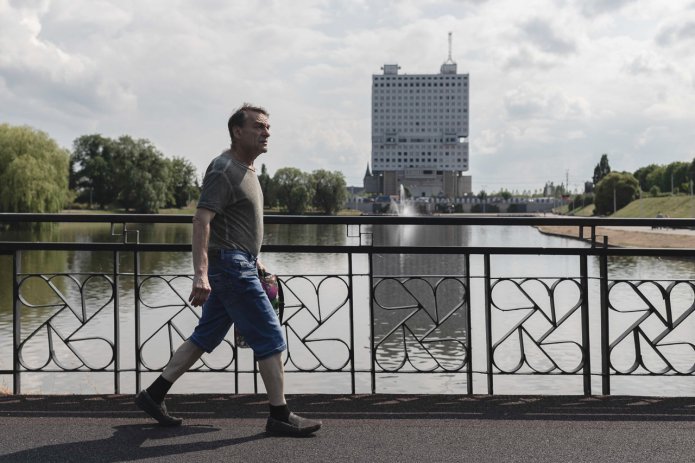
Baryshnikov, he says, is not discouraged. He says the support of his relatives, friends and other activists helps him a lot: "Everyone shares my views. They are worried about me a lot, but they do not interfere. They understand what country we live in".
Now his wife has come from Kaliningrad to visit him. Previously, she lived with their daughter and now helps Baryshnikov take care of his mother.
"I recently got a call from a relative in Germany", says the man. — She asked: "How's it going, what's going on with your case? We hope it will all turn out well. I told her that the prosecutor had asked for eight years in prison. My relative did not understand and asked me again: "Will you have to do time?" It is difficult for people in Europe to realise that in Russia they can get eight years for nothing.
At the time of the interview Baryshnikov understood that despite all the extenuating circumstances, he could indeed be convicted to a real term. "Of course, I am thinking about it. How can I not think about it? My wife also worries a lot, but what can I do? I understand that I have not committed any crime: I have not killed anyone, I have not robbed, I have not raped. Why should I run away? And where would I run to? How am I going to leave my mother? She is absolutely helpless now", Baryshnikov told OVD-Info, immediately adding that he still hopes for the best.
His wife attends church daily, praying for the court to take their side. "The parishioners are almost all in favour of the 'special military operation' and support the government, but at the same time they pray for me every day and are very sympathetic to our family", Baryshnikov says. — It's so interesting how people combine all this”.
We have launched a petition for the release of Baryshnikov here.
Karina Merkuryeva



